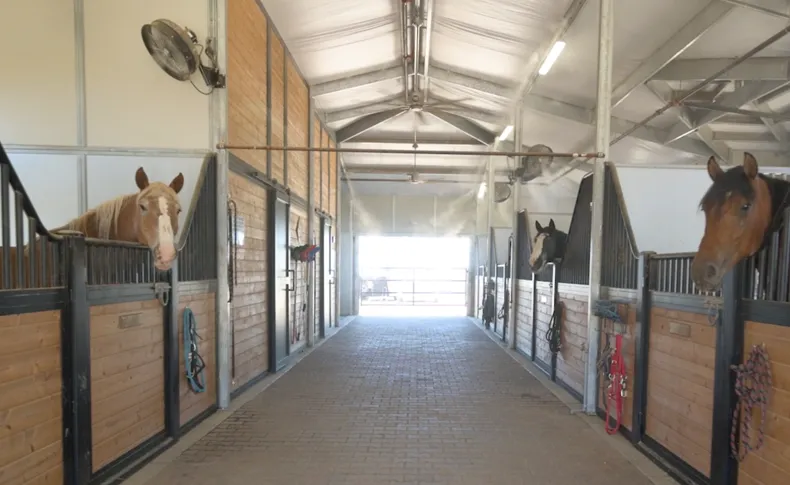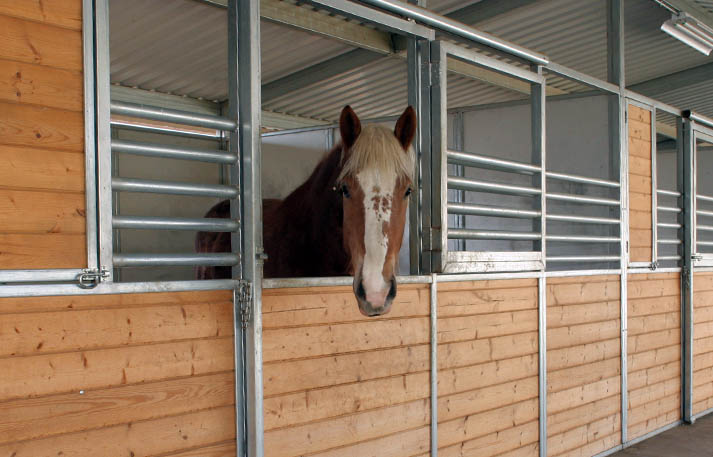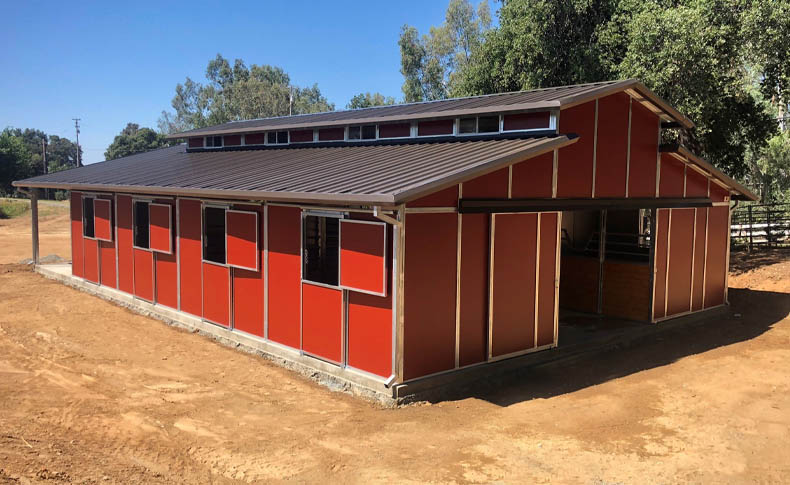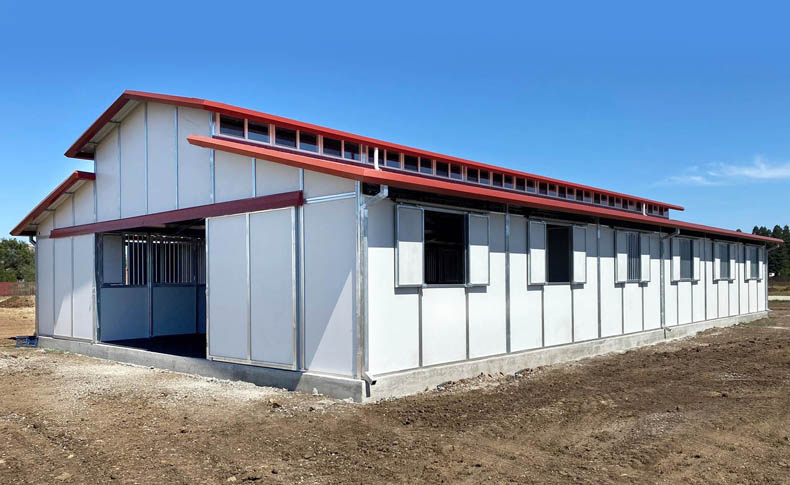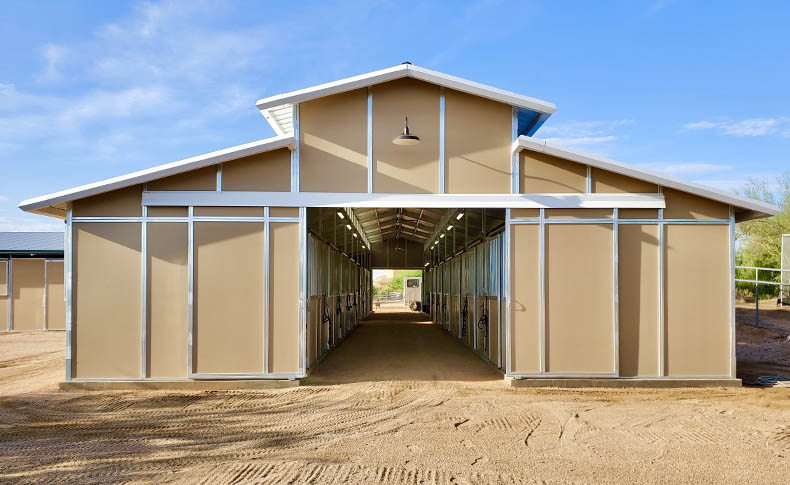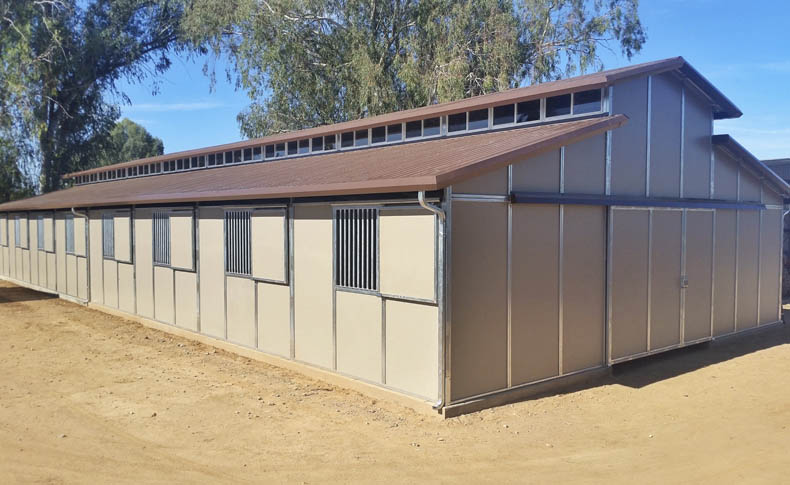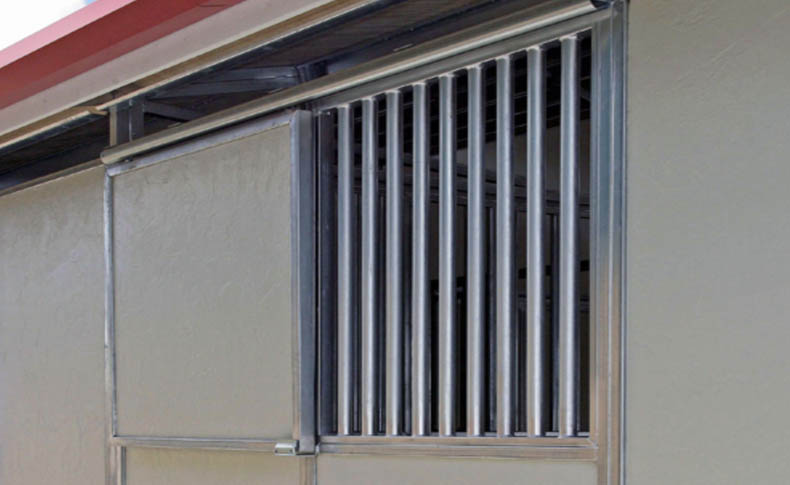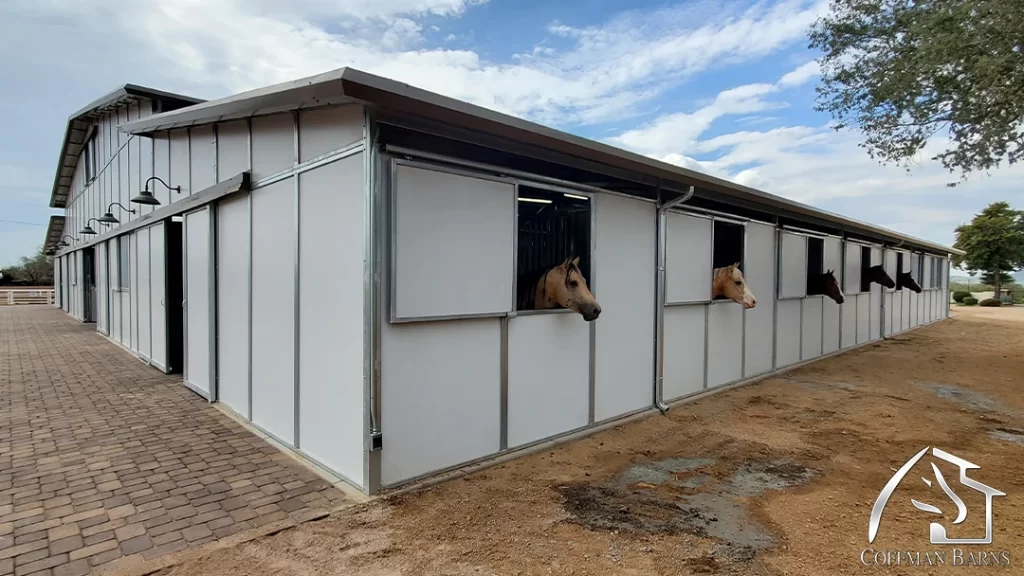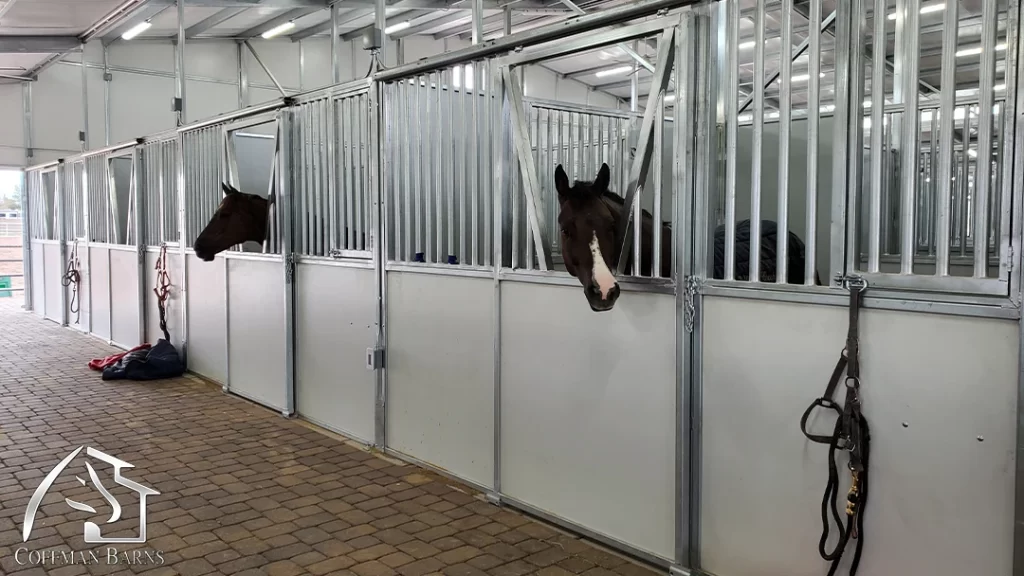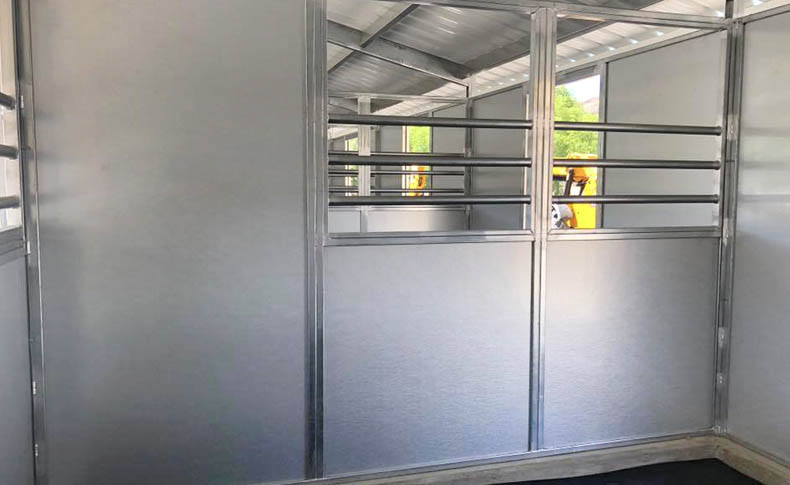Barn Ventilation
It’s all about the airflow – Ways to improve barn ventilation
Tips for closed style Gable or Raised Center Aisle (RCA) barns.
Depending on your geographical location, seasonal climate conditions, or personal architectural preferences, open style naturally ventilated barns, like Shedrow or Mare Motels, are probably not your barn of choice.
As horse owners, we all want our equine friends to be healthy and happy. One of the essential components of horse care is ensuring that the barn or stable they live in is properly ventilated. Proper barn ventilation has a significant impact on your horse’s respiratory health and overall well-being. In this article, we’ll discuss the importance of proper barn ventilation and ways to ensure your horse gets the clean, fresh air it needs to thrive.
Benefits of Proper Barn Ventilation
- Respiratory Health
Like humans, horses need fresh air to breathe to be healthy. Poor air quality, high humidity levels, and stagnant air can increase the risk of respiratory infections and other ailments. Poor ventilation in barns can lead to high levels of ammonia, dust, and mold, which can irritate your horse’s lungs, leading to respiratory problems. Therefore, adequate ventilation must be provided to prevent respiratory ailments, minimize risks, and support healthy lungs.
- Temperature Control
Barn ventilation helps regulate temperature and humidity levels. When the air gets too hot, horses can suffer from heat stress. This can lead to dehydration, lethargy, and increased respiratory and cardiovascular stress. During winter months, it’s essential to control humidity levels to prevent condensation from forming on surfaces. High humidity levels result in tack mold and feed spoilage, which ultimately degrades your horse’s environment.
- Pest Control
Insects and pests are commonplace in barns as they thrive in warm and moist environments. Poor ventilation contributes to this problem as moisture in the air can create ideal breeding grounds for pests. The fly-borne infections cause illnesses like equine infectious anemia, and the increased risk of the west nile virus infection, which can result in serious health problems. Adequate ventilation can help control pest populations and minimize the risk of insect-borne illnesses.
- Reduce Health Risks
Proper ventilation helps prevent illnesses and reduce stress levels in horses. A stagnant and humid air environment encourages the growth of germs and viruses that can cause various health complications and emotional distress in your equine friend. Ammonia levels from urine and feces buildup can cause respiratory diseases, heart disease, and skin infections. Proper ventilation can combat these issues and promote good health overall.
- Air Quality
The quality of the air your horse has in the barn is paramount to its health. Fresh air helps maintain the immune system, enhances alertness, and allows horses to rest while breathing adequately. Air circulating through barns helps reduce the likelihood of adverse animal reactions from horses who are stressed, fatigued, or facing health complications. Good ventilation removes stale air, keeping the barn fresh and healthy for your horses.
3 Tips to improve barn ventilation
- When it gets cold, resist the temptation to seal up your barn to keep your horses cozy. It’s better to put an extra blanket on your horse than to keep them in a completely closed barn. Closing off your barn from all inlets/outlets allows only the old stale air to recirculate which can cause health problems for your horses.
- You can achieve proper ventilation through natural means (windows, doors, etc.), mechanical means (fans, air ducts, etc.), or a mixture of both. Strive for cross-ventilation by having stall windows or doors. Breezeway doors as well as raised center aisle windows can be left fully or partially open depending upon the weather.
- Consider using ceiling fans evenly spaced throughout the walkways or breezeways. Ceiling fans will recirculate, mix and homogenize the air, moving large volumes of air vertically over the horses and throughout the entire barn resulting in a healthier, cooler, and more consistent environment all year long. Remember to make adjustments to accommodate seasonal differences in temperature and airflow. Most often, fans are run on medium-high or high in the summer for a more cooling effect, and medium to medium-low in the winter to keep the warm air down off the ceiling and to improve the overall air quality. Many people turn fans off in the winter, but in colder climates, there can be a 10-30 degree difference between the floor and the roof. By running the fans at low speed, not only will it greatly reduce or prevent condensation from forming on the roof, you can cut energy costs at the same time by using the heat that is generated instead of letting it dissipate at ceiling level.
Ensuring proper barn ventilation is essential to maintaining healthy horse living conditions. Adequate airflow promotes better respiratory health, pest control, temperature control, health risk reduction, and improved air quality. As horse owners, it is our responsibility to create an environment that supports optimal health for our beloved equine partners. Proper ventilation is one of the necessary steps to ensuring that your horse is healthy and happy. A well-ventilated barn will provide a healthy home for your horses which helps you breathe a little easier.
To learn more about Barn Ventilation, or to Request a Quote, call us and speak to an FCP design consultant at 1-800-807-2276.
Regular business hours Mon-Fri 8am-5pm (PST). For after hours please use our contact form.

The Equestrian Industry’s First and Only 3D Visual Barn Building Planner That Can Design the Interior Floor Plan Spaces

What is the best ventilation for a barn?
Barns require good air circulation to prevent moisture buildup and minimize unpleasant odors. The most effective ventilation option depends on the size and layout of your barn. For small barns, simply opening windows or doors can provide adequate airflow. For larger spaces, consider installing automatic vents, fans, or other mechanical systems that will bring in fresh outside air and expel stale air more efficiently.
How do I increase ventilation in my barn?
To help increase air circulation in your barn make sure that any doors or windows can be opened to allow for better airflow and consider adding fans to create air movement within the space.
Why is barn ventilation important?
Ensuring proper barn ventilation is essential to maintaining healthy horse living conditions. Adequate airflow promotes better respiratory health, pest control, temperature control, health risk reduction, and improved air quality.
